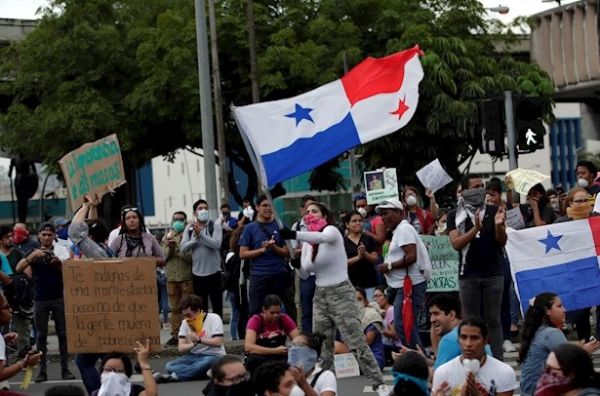
At least 46 citizens and 6 minors were arrested in Panama City on Wednesday as a result of protests against constitutional reforms, which would see Congress able to change the national budget and oversee investigations of judges and prosecutors.
Although citizens have been demonstrating since last week, Wednesday’s protests were the most intense so far.
As a result of homophobic statements made by lawmaker Jairo Salazar, who prevented LGTBI activists from entering parliament on Tuesday, Panamanians were outraged and stormed the headquarters of the ruling Revolutionary Democratic Party (PRD).
Panama City’s protests lasted until dawn despite the fact that the police tried to halt actions carried out by the citizens, who denounced that the National Police (PN) had used “heavy caliber weapons.”
The PN director Alexis Muñoz denied that his officers used such weapons; however, he admitted that “the necessary force was used to repress these people.”
On Monday, the Panamanian Congress approved constitutional reforms, including modifications to 40 articles submitted by President Laurentino Cortizo, who took office last July.
His proposal was elaborated by the Council of the National Development Agreement (CCND), the official forum which organized a reform that seemed to have been agreed upon with the citizens.
Nevertheless, even the CCND expressed concern about the inclusion of a series of “inconvenient and inappropriate” proposals and asked lawmakers to “reconsider on time”.
Cortizo’s package reform includes modifications on issues related to the administration of justice, health, education, environment and decentralization.
Besides questioning the reforms, construction workers, students from public universities and other social actors reject how the Congress has discussed the constitutional changes.
That is why the Panamanians require their authorities to convene a National Constituent Assembly.
 Escambray ENGLISH EDITION
Escambray ENGLISH EDITION





Escambray reserves the right to publish comments.